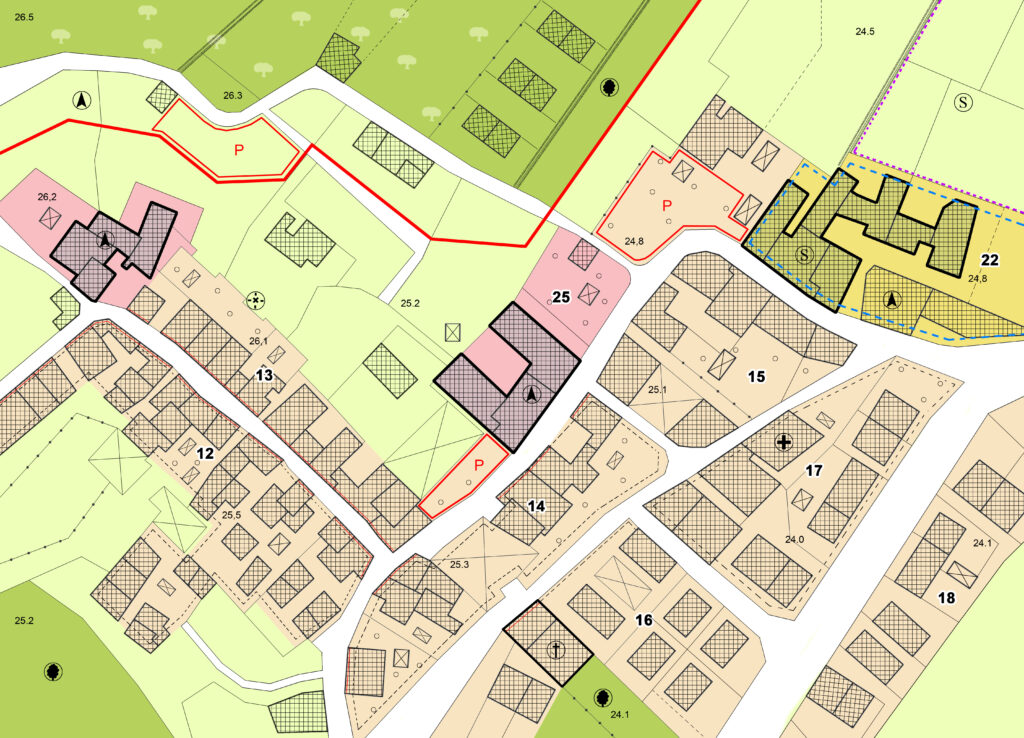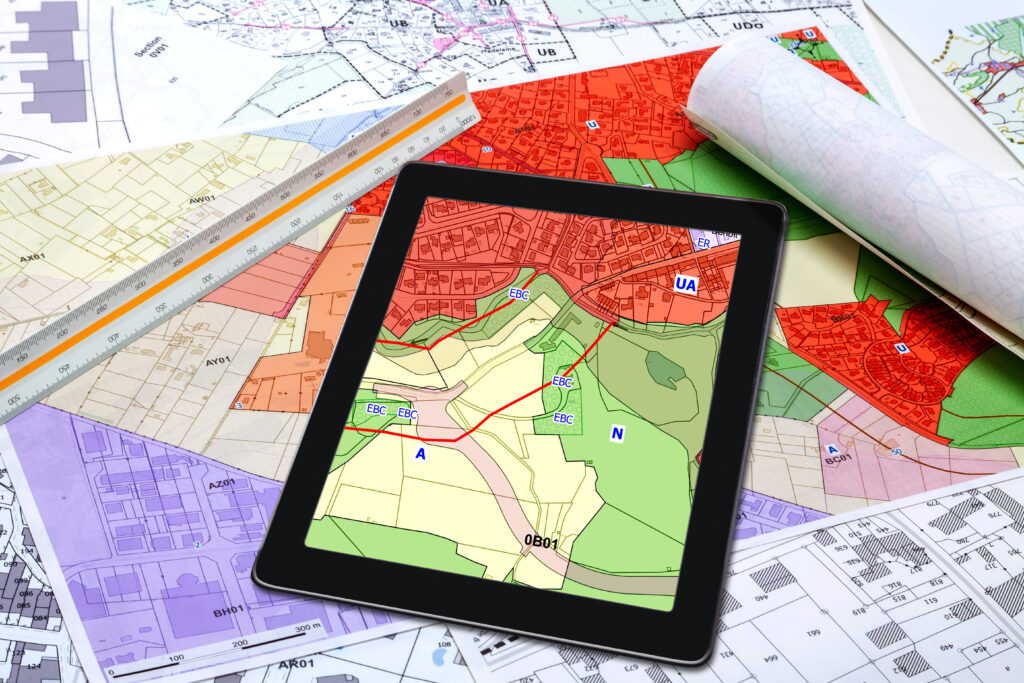If you are interested in setting up a brick-and-mortar in PA, you may need help with zoning. That building you had your heart set on may not be eligible for your intended use based on local ordinances. What are your options? Let’s explore zoning in PA – what is the process, and how you can navigate it when it comes to commercial real estate.
THE PROCESS FOR ZONING IN PA
When it comes to land use, most municipalities in PA have their own zoning ordinances and maps to define how an area may be developed. Some examples include industrial, agricultural, commercial, or residential. Zoning ordinances typically delineate which uses are permitted within each zoning district, such as residential homes, warehouses, or retail stores. Additionally, land may be zoned for multiple or mixed use. The zoning ordinance will also contain dimensional criteria – for instance, how far from a property line a building must be located or how many parking spaces your business use is required to have. Typically, zoning ordinances were established to provide for more uniform development and for residents’ safety and comfort. An example might be that a manufacturing facility producing hazardous waste may not be located near a large residential development.
After registering your business in PA, you can look up a property address to find either your municipal ordinance with details about land use or contact information for your municipality to learn more. This includes running a business out of your home. If your intended use matches the local zoning ordinance’s permitted uses for the district, you can submit a zoning permit application for business operations to your local municipality, along with any proposed construction plans or additional permits that may be required, proceeding with your commercial real estate intentions upon approval.
If your intended use does not fully align with the municipal zoning ordinance, you may seek a variance, which requires a hearing before the local zoning hearing board.

ZONING IN PA: SEEKING A VARIANCE
If your commercial use doesn’t match the municipal mapping or zoning ordinance requirements, you may formally seek a zoning board hearing. Under the Pennsylvania Municipalities Planning Code (MPC), you may have an opportunity to seek a variance if you allege “that the provisions of the zoning ordinance inflict unnecessary hardship.” However, you bear the burden of being able to showcase all of the following:
(1) That there are unique physical circumstances or conditions, including irregularity, narrowness, or shallowness of lot size or shape, or exceptional topographical or other physical conditions peculiar to the particular property and that the unnecessary hardship is due to such conditions and not the circumstances or conditions generally created by the provisions of the zoning ordinance in the neighborhood or district in which the property is located.
(2) That because of such physical circumstances or conditions, there is no possibility that the property can be developed in strict conformity with the provisions of the zoning ordinance and that the authorization of a variance is, therefore, necessary to enable the reasonable use of the property.
(3) That such unnecessary hardship has not been created by the appellant.
(4) That the variance, if authorized, will not alter the essential character of the neighborhood or district in which the property is located, nor substantially or permanently impair the appropriate use or development of the adjacent property, nor be detrimental to the public welfare.
(5) That the variance, if authorized, will represent the minimum variance that will afford relief and will represent the least modification possible of the regulation in issue.

Should the zoning hearing board grant your variance, they may also “attach such reasonable conditions and safeguards as it may deem necessary.”
Common issues like dimensional setbacks, i.e., how many feet a structure needs to be off a property line or the street, sometimes established via nonconforming use, are often resolved through variances sought by commercial real estate owners.
ZONING IN PA: OTHER REASONS FOR HEARINGS
Additionally, if your proposed use is considered a “special exception use” or a “conditional use” under the Ordinance, you will be required to obtain approval at a hearing for the proposed use. Hearings are public and those impacted by your business may be notified of the hearing and may use that event as their opportunity to express any concerns or objections.
With the support of an experienced real estate or zoning attorney, as well as engineering firms and experts, you can prepare a strong case. It’s essential to present your intentions well, addressing the issues at hand and helping to answer questions by the board or those attending the hearing.
BEYOND A ZONING HEARING BOARD
Once the Board issues a decision, there is a 30-day appeal period of that zoning decision. There have been instances where commercial real estate received zoning approval which was then appealed by public objectors or the municipality to the Court of Common Pleas. Should this appeal be successful, your zoning relief may be denied or overturned.
Of course, you, in turn, can appeal a zoning denial. Again, leaning on legal support with experience in zoning may benefit you and your business.
HELP WITH ZONING IN PA
Our team of Real Estate, Land Use & Development attorneys has successfully obtained thousands of approvals for commercial, industrial and residential projects, working closely with local, state and federal agencies. With deep knowledge and understanding of zoning law and related regulations, we have worked on projects large and small in virtually every business sector. Please reach out to us if you need help with zoning in PA.









